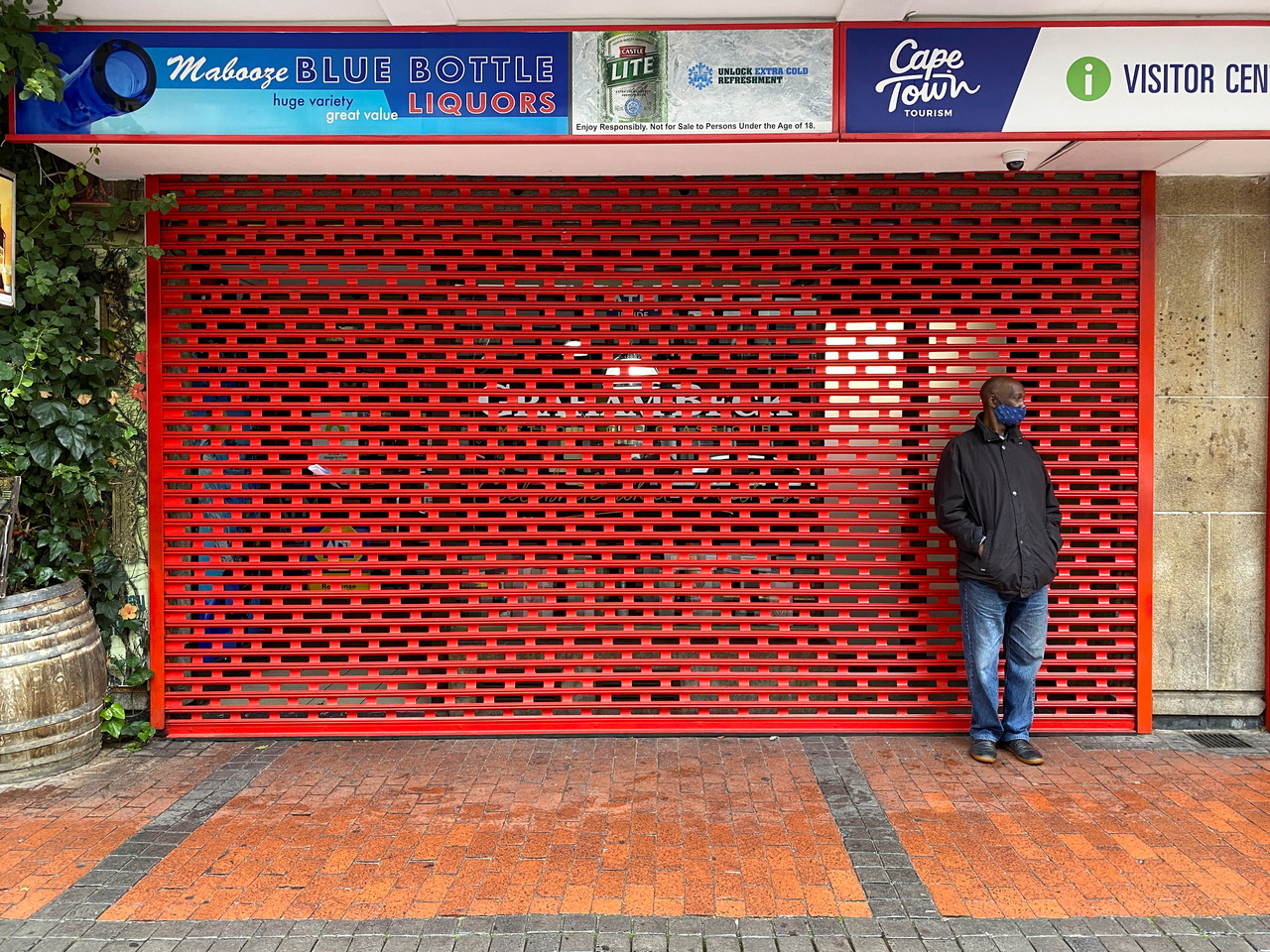South Africa extends alcohol ban as coronavirus surge wreaks havoc
Sign up now: Get ST's newsletters delivered to your inbox

Stop-start restrictions on alcohol sales are aimed at reducing trauma cases and discouraging social gatherings.
PHOTO: REUTERS
Follow topic:
JOHANNESBURG (BLOOMBERG) - South African President Cyril Ramaphosa extended bans on alcohol sales and most public gatherings for two weeks as the government struggles to bring a third wave of coronavirus infections under control.
The country will remain on virus alert Level 4, the second-highest, although there will be adjustments to some curbs, including allowing restaurants to resume operating at half their seating capacity and gyms to reopen, Mr Ramaphosa said Sunday (July 11) in a televised address.
A night-time curfew will remain in place from 9pm to 4am and schools will remain shut until July 26.
"We have had to make difficult decisions, knowing that almost every decision carries a cost to the economy and society," Mr Ramaphosa said. "We remain committed to do all that we can to mitigate the impact of the lockdown on people's livelihoods."
The extension of stringent restrictions will impede the South African economy's recovery from its biggest contraction in a century last year, when it shrank 7 per cent. In May, the central bank forecast that the output will expand 4.2 per cent this year and 2.3 per cent in 2022.
South Africa has had almost 2.2 million confirmed Covid-19 cases so far and over 63,000 of those who've been diagnosed with the disease have died. Excess natural death reports indicate the actual toll could be triple that.
"For the last two weeks, the country has consistently recorded an average of nearly 20,000 daily new cases," Mr Ramaphosa said. "At present, the country has over 200,000 active Covid-19 cases. In the last two weeks over 4,200 South Africans have lost their lives to Covid-19."
New cases have been fuelled by the spread of the highly infectious Delta variant, which was first detected in India and is now South Africa's dominant strain. The Gauteng province, which includes capital Pretoria and economic hub Johannesburg, has been particularly hard hit and its hospitals are battling to cope with the patient influx.
Stop-start restrictions on alcohol sales, including an outright ban reimposed two weeks ago, are aimed at reducing trauma cases and discouraging social gatherings. The measures have curbed revenue for producers including Anheuser-Busch InBev NV's SA Breweries unit, which is contesting them in court on the grounds that they violate the Constitution.
Mr Ramaphosa said the Unemployment Insurance Fund decided to extend temporary support workers who lost their income due to Level 4 restrictions. Since its inception last year, the so-called Covid-19 relief plan has provided more than 60 billion rand (S$5.69 billion) to protect jobs, he said.
While the government was slow off the mark to begin administering vaccines, its inoculation programme has picked up over recent weeks and more than 4.2 million doses have been given so far. The number of vaccinations issued has doubled in the past month, with 190,000 shots being administered each week day, the president said.
Mr Ramaphosa also announced that the African Union has reached an agreement with the European Union to bolster the supply of vaccines to the continent. Under the deal, Aspen Pharmacare Holdings Ltd will supply more than 17 million single-shot Johnson & Johnson doses to Africa over the next three months, and that number will double from October.
"There is a commitment by Johnson & Johnson to adapt the current arrangement, so that we can produce the vaccine in South Africa under license rather than under contract," he said. "We are negotiating that in time the drug substance itself would be produced here in South Africa, so that we have a fully-owned African vaccine manufactured on African soil in a number of countries."

